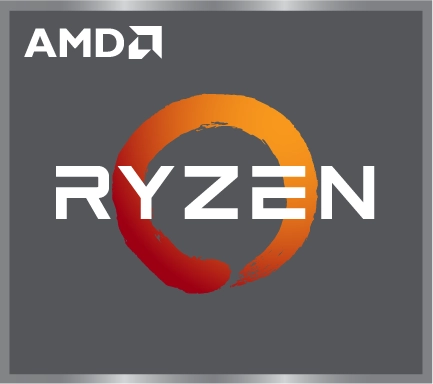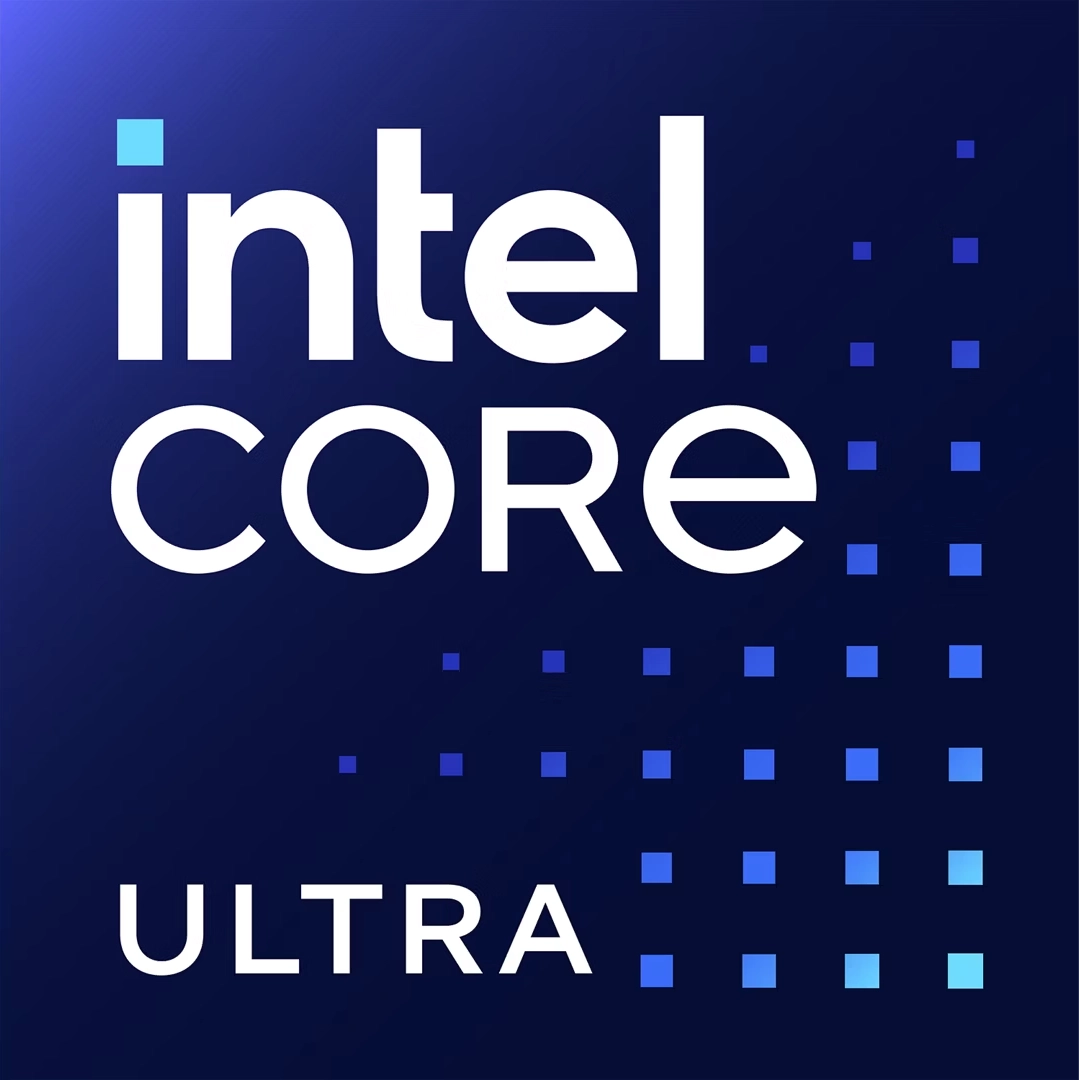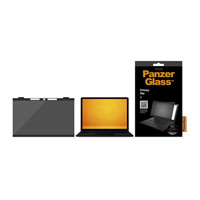Video Workstations for Media Composer
Understand Media Composer’s hardware requirements and pick the perfect 3XS Systems graphics workstation for your project
What is Media Composer?
Media Composer, from Avid Technology, is a film and video editing software application or non-linear editing system. It automates time-consuming tasks in the background, so instead of waiting for transcoding, rendering and consolidating jobs to complete, you can just keep working. Plus, it offers automated bin saving, audio mixes, audio/video sync, and more.
What makes the best system for Media Composer?
There is no one ideal system configuration for Media Composer, as users will have different video resolutions to edit and make different use of the software. Media Composer makes use of both CPU cores, higher clock speeds and GPUs too, ultimately depending on whether you are working on video editing, motion tracking and rendering or more intensive tasks like video exporting, which will place more demand on CPU and GPU resources.
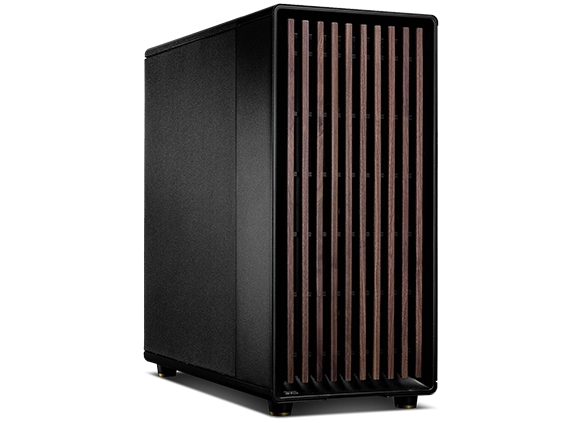
What GPU(s) do I need for Media Composer?
A fast GPU is crucial for a responsive DCC experience in Media Composer, with more powerful models providing a more noticeable benefit when working with complex and high resolution video. Avid only official supports professional-grade NVIDIA GPUs for Media Composer, so we recommend using one of the RTX-series of cards in your workstation.
How much RAM is recommended for Media Composer?
The minimum RAM that we recommend for Media Composer is 32GB for HD projects, upgrading to 64GB for 4K, 128GB for 6K and 256GB for 8K footage.
What storage does Media Composer need?
We always recommend using an SSD for the boot drive that will host your OS, Media Composer itself, and any active projects you are working on. The high speed of SSDs allows your system to boot, launch applications, and load files many times faster than any traditional hard drive. We would also recommend a second SSD or even an NVMe SSD - depending on your budget - for active Media Composer projects files. If files are large or numerous several secondary SSDs can be added in RAID configurations to protect data integrity. An alternative solution for high capacity SSD active storage or cheaper HDD archiving could be to employ an external NAS device allowing both sharing and RAID protection.

When it comes to deciding on drive capacity, this will very much depend on your number of files and the project sizes. You should also consider the space required by other applications and their associated files too.
Recommended Media Composer Workstation Specifications
| Workstation specifications | |||
|---|---|---|---|
| High-End (8K) | Mid-Range (4K) | Entry-Level (HD) | |
| CPU | AMD Ryzen Threadripper | AMD Ryzen 9 / Intel Core Ultra 9 | AMD Ryzen 7 / Intel Core Ultra 7 |
| RAM | 128GB | 128GB | 32GB |
| GPU | NVIDIA RTX | NVIDIA RTX | NVIDIA RTX |
The Best Workstations for Media Composer
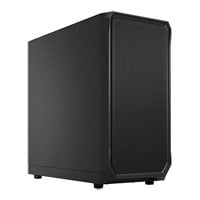
 Scan Creator, AMD Ryzen 5 5500, 32GB DDR4, 8GB NVIDIA RTX 4060, 1TB SSD, Win 11
LN148009
No customer review£929.99FREE DELIVERY ON THIS ITEM
Scan Creator, AMD Ryzen 5 5500, 32GB DDR4, 8GB NVIDIA RTX 4060, 1TB SSD, Win 11
LN148009
No customer review£929.99FREE DELIVERY ON THIS ITEM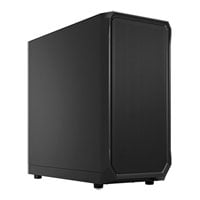
 Scan Creator, Intel Core i5 12400F, 32GB DDR4, 8GB NVIDIA RTX 4060, 1TB SSD, Win 11
LN148016
No customer review£929.99FREE DELIVERY ON THIS ITEMETA 1-2 days
Scan Creator, Intel Core i5 12400F, 32GB DDR4, 8GB NVIDIA RTX 4060, 1TB SSD, Win 11
LN148016
No customer review£929.99FREE DELIVERY ON THIS ITEMETA 1-2 days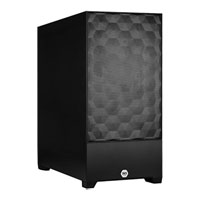
 3XS Evolve Studio, Intel Core i5 14400F, 32GB DDR4, 8GB NVIDIA RTX 4060, 1TB SSD, 2TB SSD, Win 11
LN148051
No customer review£1,149.98FREE DELIVERY ON THIS ITEMETA 6-8 days
3XS Evolve Studio, Intel Core i5 14400F, 32GB DDR4, 8GB NVIDIA RTX 4060, 1TB SSD, 2TB SSD, Win 11
LN148051
No customer review£1,149.98FREE DELIVERY ON THIS ITEMETA 6-8 days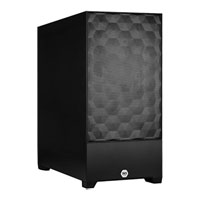
 3XS Evolve Studio, Intel Core i5 14400F, 32GB DDR4, 16GB NVIDIA RTX 4060 Ti, 1TB SSD, 2TB SSD, Win 11
LN148059
No customer review£1,299.98FREE DELIVERY ON THIS ITEMETA 6-8 days
3XS Evolve Studio, Intel Core i5 14400F, 32GB DDR4, 16GB NVIDIA RTX 4060 Ti, 1TB SSD, 2TB SSD, Win 11
LN148059
No customer review£1,299.98FREE DELIVERY ON THIS ITEMETA 6-8 days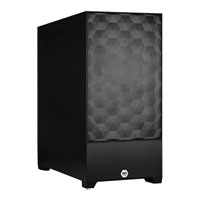
 3XS Evolve Studio, AMD Ryzen 5 9600X, 32GB DDR5, 8GB NVIDIA RTX 4060, 1TB SSD, 2TB SSD, Win 11
LN148020
No customer review£1,379.99FREE DELIVERY ON THIS ITEMETA 6-8 days
3XS Evolve Studio, AMD Ryzen 5 9600X, 32GB DDR5, 8GB NVIDIA RTX 4060, 1TB SSD, 2TB SSD, Win 11
LN148020
No customer review£1,379.99FREE DELIVERY ON THIS ITEMETA 6-8 days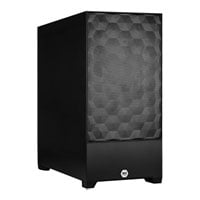
 3XS Evolve Studio, AMD Ryzen 5 9600X, 32GB DDR5, 16GB NVIDIA RTX 4060 Ti, 1TB SSD, 2TB SSD, Win 11
LN148023
No customer review£1,529.99FREE DELIVERY ON THIS ITEMETA 6-8 days
3XS Evolve Studio, AMD Ryzen 5 9600X, 32GB DDR5, 16GB NVIDIA RTX 4060 Ti, 1TB SSD, 2TB SSD, Win 11
LN148023
No customer review£1,529.99FREE DELIVERY ON THIS ITEMETA 6-8 days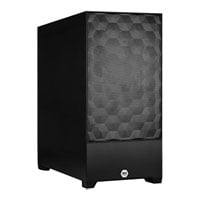
 3XS Evolve Studio, Intel Core i7 14700F, 32GB DDR4, 12GB NVIDIA RTX 5070, 1TB SSD, 2TB SSD, Win 11
LN148075
Customer Review £1,749.98FREE DELIVERY ON THIS ITEMETA 6-8 days
3XS Evolve Studio, Intel Core i7 14700F, 32GB DDR4, 12GB NVIDIA RTX 5070, 1TB SSD, 2TB SSD, Win 11
LN148075
Customer Review £1,749.98FREE DELIVERY ON THIS ITEMETA 6-8 days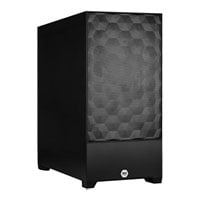
 3XS Evolve Studio, AMD Ryzen 7 9700X, 32GB DDR5, 12GB NVIDIA RTX 5070, 1TB SSD, 2TB SSD, Win 11
LN148027
No customer review£1,799.99FREE DELIVERY ON THIS ITEMETA 6-8 days
3XS Evolve Studio, AMD Ryzen 7 9700X, 32GB DDR5, 12GB NVIDIA RTX 5070, 1TB SSD, 2TB SSD, Win 11
LN148027
No customer review£1,799.99FREE DELIVERY ON THIS ITEMETA 6-8 days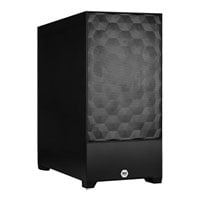
 3XS Evolve Studio, Intel Core i7 14700K, 64GB DDR4, 16GB NVIDIA RTX 5070 Ti, 1TB SSD, 2TB SSD, Win 11
LN148077
No customer review£2,049.98FREE DELIVERY ON THIS ITEMETA 6-8 days
3XS Evolve Studio, Intel Core i7 14700K, 64GB DDR4, 16GB NVIDIA RTX 5070 Ti, 1TB SSD, 2TB SSD, Win 11
LN148077
No customer review£2,049.98FREE DELIVERY ON THIS ITEMETA 6-8 days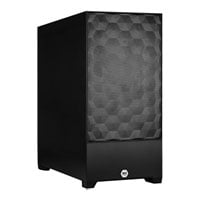
 3XS Evolve Studio, AMD Ryzen 7 9700X, 64GB DDR5, 16GB NVIDIA RTX 5070 Ti, 1TB SSD, 2TB SSD, Win 11
LN148028
No customer review£2,099.99FREE DELIVERY ON THIS ITEMETA 6-8 days
3XS Evolve Studio, AMD Ryzen 7 9700X, 64GB DDR5, 16GB NVIDIA RTX 5070 Ti, 1TB SSD, 2TB SSD, Win 11
LN148028
No customer review£2,099.99FREE DELIVERY ON THIS ITEMETA 6-8 days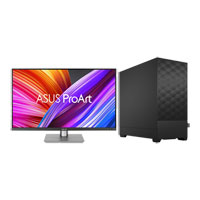
 3XS Evolve Studio, Intel Core i7 14700F, 32GB DDR4, 12GB NVIDIA RTX 5070, 1TB SSD, 2TB SSD, Win 11, ProArt Monitor
LN150808
No customer review£2,399.99FREE DELIVERY ON THIS ITEM
3XS Evolve Studio, Intel Core i7 14700F, 32GB DDR4, 12GB NVIDIA RTX 5070, 1TB SSD, 2TB SSD, Win 11, ProArt Monitor
LN150808
No customer review£2,399.99FREE DELIVERY ON THIS ITEM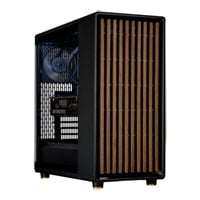
 3XS Evolve Studio Pro, AMD Ryzen 9 9900X, 64GB DDR5, 16GB NVIDIA RTX 5070 Ti, 1TB SSD, 2TB SSD, Win 11
LN148140
No customer review£2,599.99FREE DELIVERY ON THIS ITEM
3XS Evolve Studio Pro, AMD Ryzen 9 9900X, 64GB DDR5, 16GB NVIDIA RTX 5070 Ti, 1TB SSD, 2TB SSD, Win 11
LN148140
No customer review£2,599.99FREE DELIVERY ON THIS ITEM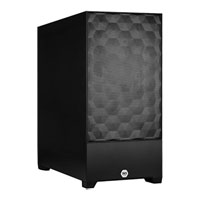
 3XS Evolve Studio, AMD Ryzen 9 9900X, 64GB DDR5, 16GB NVIDIA RTX 5080, 1TB SSD, 2TB SSD, Win 11
LN155350
No customer review£2,599.99FREE DELIVERY ON THIS ITEMETA 6-8 days
3XS Evolve Studio, AMD Ryzen 9 9900X, 64GB DDR5, 16GB NVIDIA RTX 5080, 1TB SSD, 2TB SSD, Win 11
LN155350
No customer review£2,599.99FREE DELIVERY ON THIS ITEMETA 6-8 days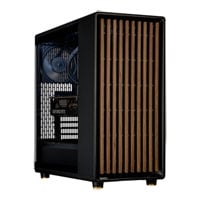
 3XS Evolve Studio Pro, Intel Core i9 14900K, 64GB DDR5, 16GB NVIDIA RTX 4070 Ti SUPER, 1TB SSD, 2TB SSD, Win 11
LN148131
No customer review£2,749.99FREE DELIVERY ON THIS ITEM
3XS Evolve Studio Pro, Intel Core i9 14900K, 64GB DDR5, 16GB NVIDIA RTX 4070 Ti SUPER, 1TB SSD, 2TB SSD, Win 11
LN148131
No customer review£2,749.99FREE DELIVERY ON THIS ITEM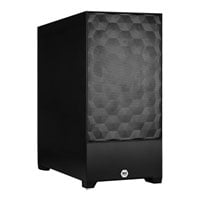
 3XS Evolve Studio, Intel Core Ultra 9 285K, 64GB DDR5, 16GB NVIDIA RTX 5080, 1TB SSD, 2TB SSD, Win 11
LN155371
No customer review£2,799.98FREE DELIVERY ON THIS ITEMETA 6-8 days
3XS Evolve Studio, Intel Core Ultra 9 285K, 64GB DDR5, 16GB NVIDIA RTX 5080, 1TB SSD, 2TB SSD, Win 11
LN155371
No customer review£2,799.98FREE DELIVERY ON THIS ITEMETA 6-8 days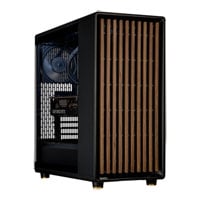
 3XS Evolve Studio Pro, AMD Ryzen 9 9900X, 96GB DDR5, 16GB NVIDIA RTX 5080, 1TB SSD, 2TB SSD, Win 11
LN155355
No customer review£2,899.99FREE DELIVERY ON THIS ITEMETA 6-8 days
3XS Evolve Studio Pro, AMD Ryzen 9 9900X, 96GB DDR5, 16GB NVIDIA RTX 5080, 1TB SSD, 2TB SSD, Win 11
LN155355
No customer review£2,899.99FREE DELIVERY ON THIS ITEMETA 6-8 days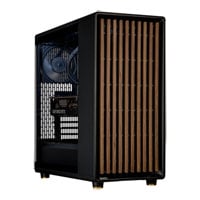
 3XS Evolve Studio Pro, Intel Core Ultra 9 285K, 96GB DDR5, 16GB NVIDIA RTX 5080, 1TB SSD, 2TB SSD, Win 11
LN155374
No customer review£2,999.99FREE DELIVERY ON THIS ITEMETA 6-8 days
3XS Evolve Studio Pro, Intel Core Ultra 9 285K, 96GB DDR5, 16GB NVIDIA RTX 5080, 1TB SSD, 2TB SSD, Win 11
LN155374
No customer review£2,999.99FREE DELIVERY ON THIS ITEMETA 6-8 days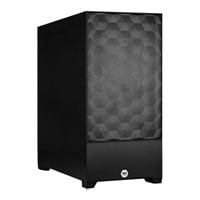
 3XS Evolve Studio, AMD Ryzen 9 9900X, 64GB DDR5, 32GB NVIDIA RTX 5090, 1TB SSD, 2TB SSD, Win 11
LN155357
No customer review£3,799.99FREE DELIVERY ON THIS ITEMETA 6-8 days
3XS Evolve Studio, AMD Ryzen 9 9900X, 64GB DDR5, 32GB NVIDIA RTX 5090, 1TB SSD, 2TB SSD, Win 11
LN155357
No customer review£3,799.99FREE DELIVERY ON THIS ITEMETA 6-8 days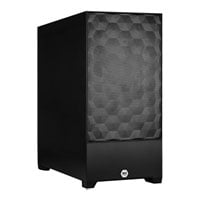
 3XS Evolve Studio, Intel Core Ultra 9 285K, 64GB DDR5, 32GB NVIDIA RTX 5090, 1TB SSD, 2TB SSD, Win 11
LN155387
No customer review£3,999.98FREE DELIVERY ON THIS ITEMETA 6-8 days
3XS Evolve Studio, Intel Core Ultra 9 285K, 64GB DDR5, 32GB NVIDIA RTX 5090, 1TB SSD, 2TB SSD, Win 11
LN155387
No customer review£3,999.98FREE DELIVERY ON THIS ITEMETA 6-8 days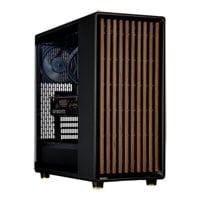
 3XS Evolve Studio Pro, Intel Core Ultra 9 285K, 96GB DDR5, 32GB NVIDIA RTX 5090, 1TB SSD, 2TB SSD, Win 11
LN155385
No customer review£4,299.98FREE DELIVERY ON THIS ITEMETA 6-8 days
3XS Evolve Studio Pro, Intel Core Ultra 9 285K, 96GB DDR5, 32GB NVIDIA RTX 5090, 1TB SSD, 2TB SSD, Win 11
LN155385
No customer review£4,299.98FREE DELIVERY ON THIS ITEMETA 6-8 days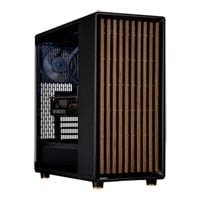
 3XS Evolve Studio Pro, AMD Ryzen 9 9950X, 96GB DDR5, 32GB NVIDIA RTX 5090, 1TB SSD, 2TB SSD, Win 11
LN155358
No customer review£4,499.99FREE DELIVERY ON THIS ITEMETA 6-8 days
3XS Evolve Studio Pro, AMD Ryzen 9 9950X, 96GB DDR5, 32GB NVIDIA RTX 5090, 1TB SSD, 2TB SSD, Win 11
LN155358
No customer review£4,499.99FREE DELIVERY ON THIS ITEMETA 6-8 days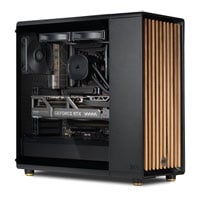
 3XS Evolve Studio Pro, AMD Ryzen 9 9950X3D, 64GB DDR5, 32GB NVIDIA RTX 5090, 2TB SSD, Win 11
LN158057
No customer review£4,999.99FREE DELIVERY ON THIS ITEMDue today
3XS Evolve Studio Pro, AMD Ryzen 9 9950X3D, 64GB DDR5, 32GB NVIDIA RTX 5090, 2TB SSD, Win 11
LN158057
No customer review£4,999.99FREE DELIVERY ON THIS ITEMDue today

Use our online configurator to pick each and every components of your video workstation built by 3XS Systems.
VISIT CONFIGURATOR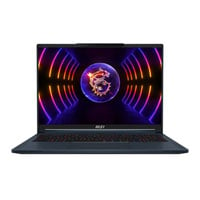
 16" MSI Stealth 16 Studio A13VF-011UK, QHD+, 240Hz, i7 13700H, 16GB DDR5, 1TB NVMe SSD, 8GB GeForce RTX 4060, Win11
LN133105
Customer Review £2,399.99£5.48 NEXT DAY DELIVERY
16" MSI Stealth 16 Studio A13VF-011UK, QHD+, 240Hz, i7 13700H, 16GB DDR5, 1TB NVMe SSD, 8GB GeForce RTX 4060, Win11
LN133105
Customer Review £2,399.99£5.48 NEXT DAY DELIVERY

Use our online configurator to pick each and every components of your laptop built by 3XS Systems.
VISIT CONFIGURATOR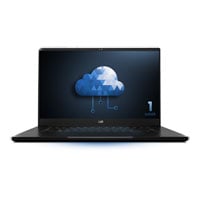
 3XS SC N1-24C - 1 Week - Intel Core i9 14900K, 64GB DDR5, 24GB NVIDIA RTX 4090
LN145366
No customer review£75.00£5.48 NEXT DAY DELIVERY
3XS SC N1-24C - 1 Week - Intel Core i9 14900K, 64GB DDR5, 24GB NVIDIA RTX 4090
LN145366
No customer review£75.00£5.48 NEXT DAY DELIVERY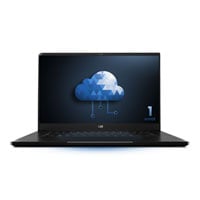
 3XS SC NB1-16C - 1 Week - AMD Ryzen 9 9900X, 64GB DDR5, 32GB NVIDIA RTX 5090
LN154997
No customer review£90.00£5.48 NEXT DAY DELIVERY
3XS SC NB1-16C - 1 Week - AMD Ryzen 9 9900X, 64GB DDR5, 32GB NVIDIA RTX 5090
LN154997
No customer review£90.00£5.48 NEXT DAY DELIVERY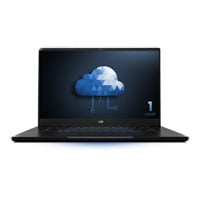
 3XS SC N2-32T - 1 Week - AMD Ryzen Threadripper PRO 5975WX, 256GB DDR4 ECC, 2x 24GB NVIDIA RTX 4090
LN145371
No customer review£150.00
3XS SC N2-32T - 1 Week - AMD Ryzen Threadripper PRO 5975WX, 256GB DDR4 ECC, 2x 24GB NVIDIA RTX 4090
LN145371
No customer review£150.00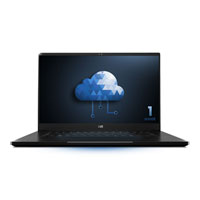
 3XS SC NB2-32T - 1 Week - AMD Ryzen Threadripper 7960X, 256GB DDR5 ECC, 2x 32GB NVIDIA RTX 5090
LN154999
No customer review£180.00
3XS SC NB2-32T - 1 Week - AMD Ryzen Threadripper 7960X, 256GB DDR5 ECC, 2x 32GB NVIDIA RTX 5090
LN154999
No customer review£180.00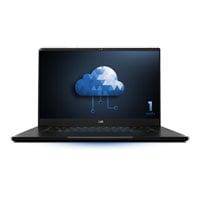
 3XS SC N1-24C - 1 Month - Intel Core i9 14900K, 64GB DDR5, 24GB NVIDIA RTX 4090
LN145367
No customer review£300.00
3XS SC N1-24C - 1 Month - Intel Core i9 14900K, 64GB DDR5, 24GB NVIDIA RTX 4090
LN145367
No customer review£300.00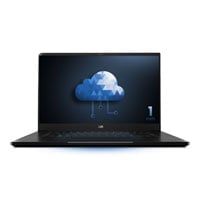
 3XS SC NB1-16C - 1 Month - AMD Ryzen 9 9900X, 64GB DDR5, 32GB NVIDIA RTX 5090
LN155010
No customer review£360.00
3XS SC NB1-16C - 1 Month - AMD Ryzen 9 9900X, 64GB DDR5, 32GB NVIDIA RTX 5090
LN155010
No customer review£360.00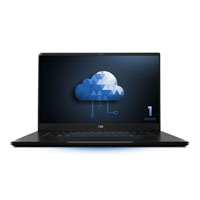
 3XS SC NB4-32T - 1 Week - AMD Ryzen Threadripper PRO 7975WX, 256GB DDR5 ECC, 4x 32GB NVIDIA RTX 5090
LN155008
No customer reviewCall for price
3XS SC NB4-32T - 1 Week - AMD Ryzen Threadripper PRO 7975WX, 256GB DDR5 ECC, 4x 32GB NVIDIA RTX 5090
LN155008
No customer reviewCall for price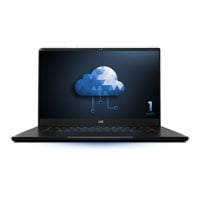
 3XS SC N2-32T - 1 Month - AMD Ryzen Threadripper PRO 5975WX, 256GB DDR4 ECC, 2x 24GB NVIDIA RTX 4090
LN145372
No customer review£600.00
3XS SC N2-32T - 1 Month - AMD Ryzen Threadripper PRO 5975WX, 256GB DDR4 ECC, 2x 24GB NVIDIA RTX 4090
LN145372
No customer review£600.00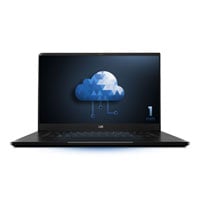
 3XS SC NB2-32T - 1 Month - AMD Ryzen Threadripper 7960X, 256GB DDR5 ECC, 2x 32GB NVIDIA RTX 5090
LN155011
No customer review£720.00
3XS SC NB2-32T - 1 Month - AMD Ryzen Threadripper 7960X, 256GB DDR5 ECC, 2x 32GB NVIDIA RTX 5090
LN155011
No customer review£720.00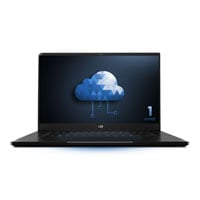
 3XS SC NB8-32T - 1 Week - AMD EPYC 9354P, 256GB DDR5 ECC, 8x 32GB NVIDIA RTX 5090
LN155009
No customer review£720.00
3XS SC NB8-32T - 1 Week - AMD EPYC 9354P, 256GB DDR5 ECC, 8x 32GB NVIDIA RTX 5090
LN155009
No customer review£720.00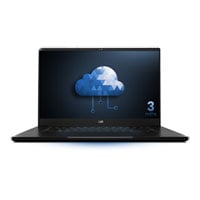
 3XS SC N1-24C - 3 Months - Intel Core i9 14900K, 64GB DDR5, 24GB NVIDIA RTX 4090
LN145368
No customer review£900.00
3XS SC N1-24C - 3 Months - Intel Core i9 14900K, 64GB DDR5, 24GB NVIDIA RTX 4090
LN145368
No customer review£900.00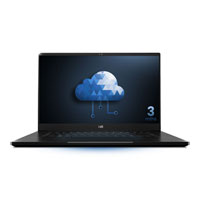
 3XS SC NB1-16C - 3 Months - AMD Ryzen 9 9900X, 64GB DDR5, 32GB NVIDIA RTX 5090
LN155014
No customer review£1,080.00
3XS SC NB1-16C - 3 Months - AMD Ryzen 9 9900X, 64GB DDR5, 32GB NVIDIA RTX 5090
LN155014
No customer review£1,080.00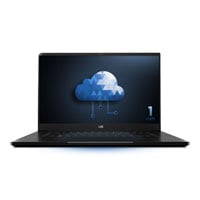
 3XS SC NB4-32T - 1 Month - AMD Ryzen Threadripper PRO 7975WX, 256GB DDR5 ECC, 4x 32GB NVIDIA RTX 5090
LN155012
No customer review£1,440.00
3XS SC NB4-32T - 1 Month - AMD Ryzen Threadripper PRO 7975WX, 256GB DDR5 ECC, 4x 32GB NVIDIA RTX 5090
LN155012
No customer review£1,440.00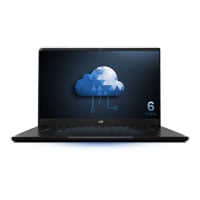
 3XS SC N1-24C - 6 Months - Intel Core i9 14900K, 64GB DDR5, 24GB NVIDIA RTX 4090
LN145369
No customer review£1,800.00
3XS SC N1-24C - 6 Months - Intel Core i9 14900K, 64GB DDR5, 24GB NVIDIA RTX 4090
LN145369
No customer review£1,800.00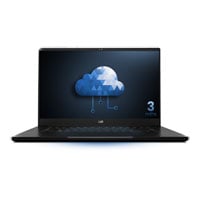
 3XS SC N2-32T - 3 Months - AMD Ryzen Threadripper PRO 5975WX, 256GB DDR4 ECC, 2x 24GB NVIDIA RTX 4090
LN145373
No customer review£1,800.00
3XS SC N2-32T - 3 Months - AMD Ryzen Threadripper PRO 5975WX, 256GB DDR4 ECC, 2x 24GB NVIDIA RTX 4090
LN145373
No customer review£1,800.00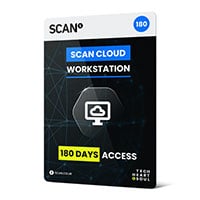
 3XS SC NB1-16C - 6 Months - AMD Ryzen 9 9900X, 64GB DDR5, 32GB NVIDIA RTX 5090
LN155022
No customer review£2,160.00
3XS SC NB1-16C - 6 Months - AMD Ryzen 9 9900X, 64GB DDR5, 32GB NVIDIA RTX 5090
LN155022
No customer review£2,160.00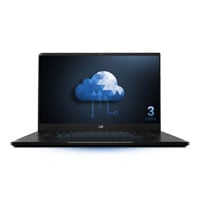
 3XS SC NB2-32T - 3 Months - AMD Ryzen Threadripper 7960X, 256GB DDR5 ECC, 2x 32GB NVIDIA RTX 5090
LN155018
No customer review£2,160.00
3XS SC NB2-32T - 3 Months - AMD Ryzen Threadripper 7960X, 256GB DDR5 ECC, 2x 32GB NVIDIA RTX 5090
LN155018
No customer review£2,160.00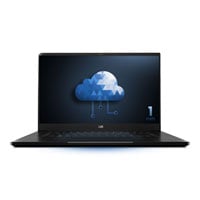
 3XS SC NB8-32T - 1 Month - AMD EPYC 9354P, 256GB DDR5 ECC, 8x 32GB NVIDIA RTX 5090
LN155013
No customer review£2,880.00
3XS SC NB8-32T - 1 Month - AMD EPYC 9354P, 256GB DDR5 ECC, 8x 32GB NVIDIA RTX 5090
LN155013
No customer review£2,880.00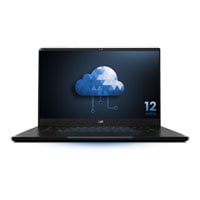
 3XS SC N1-24C - 12 Months - Intel Core i9 14900K, 64GB DDR5, 24GB NVIDIA RTX 4090
LN145370
No customer review£3,600.00
3XS SC N1-24C - 12 Months - Intel Core i9 14900K, 64GB DDR5, 24GB NVIDIA RTX 4090
LN145370
No customer review£3,600.00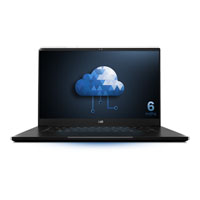
 3XS SC N2-32T - 6 Months - AMD Ryzen Threadripper PRO 5975WX, 256GB DDR4 ECC, 2x 24GB NVIDIA RTX 4090
LN145374
No customer review£3,600.00
3XS SC N2-32T - 6 Months - AMD Ryzen Threadripper PRO 5975WX, 256GB DDR4 ECC, 2x 24GB NVIDIA RTX 4090
LN145374
No customer review£3,600.00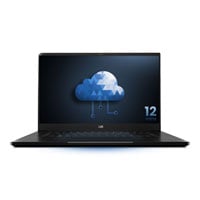
 3XS SC NB1-16C - 12 Months - AMD Ryzen 9 9900X, 64GB DDR5, 32GB NVIDIA RTX 5090
LN155026
No customer review£4,320.00
3XS SC NB1-16C - 12 Months - AMD Ryzen 9 9900X, 64GB DDR5, 32GB NVIDIA RTX 5090
LN155026
No customer review£4,320.00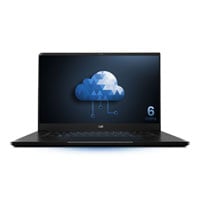
 3XS SC NB2-32T - 6 Months - AMD Ryzen Threadripper 7960X, 256GB DDR5 ECC, 2x 32GB NVIDIA RTX 5090
LN155023
No customer review£4,320.00
3XS SC NB2-32T - 6 Months - AMD Ryzen Threadripper 7960X, 256GB DDR5 ECC, 2x 32GB NVIDIA RTX 5090
LN155023
No customer review£4,320.00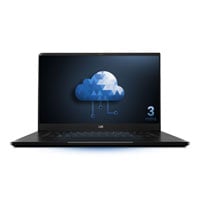
 3XS SC NB4-32T - 3 Months - AMD Ryzen Threadripper PRO 7975WX, 256GB DDR5 ECC, 4x 32GB NVIDIA RTX 5090
LN155020
No customer review£4,320.00
3XS SC NB4-32T - 3 Months - AMD Ryzen Threadripper PRO 7975WX, 256GB DDR5 ECC, 4x 32GB NVIDIA RTX 5090
LN155020
No customer review£4,320.00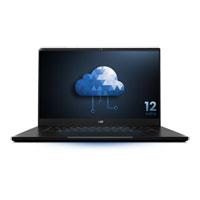
 3XS SC N2-32T - 12 Months - AMD Ryzen Threadripper PRO 5975WX, 256GB DDR4 ECC, 2x 24GB NVIDIA RTX 4090
LN145375
No customer review£7,200.00
3XS SC N2-32T - 12 Months - AMD Ryzen Threadripper PRO 5975WX, 256GB DDR4 ECC, 2x 24GB NVIDIA RTX 4090
LN145375
No customer review£7,200.00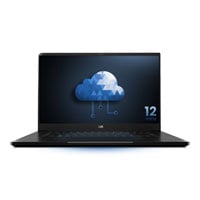
 3XS SC NB2-32T - 12 Months - AMD Ryzen Threadripper 7960X, 256GB DDR5 ECC, 2x 32GB NVIDIA RTX 5090
LN155027
No customer review£8,640.00
3XS SC NB2-32T - 12 Months - AMD Ryzen Threadripper 7960X, 256GB DDR5 ECC, 2x 32GB NVIDIA RTX 5090
LN155027
No customer review£8,640.00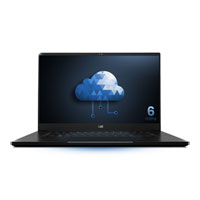
 3XS SC NB4-32T - 6 Months - AMD Ryzen Threadripper PRO 7975WX, 256GB DDR5 ECC, 4x 32GB NVIDIA RTX 5090
LN155024
No customer review£8,640.00
3XS SC NB4-32T - 6 Months - AMD Ryzen Threadripper PRO 7975WX, 256GB DDR5 ECC, 4x 32GB NVIDIA RTX 5090
LN155024
No customer review£8,640.00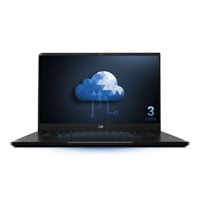
 3XS SC NB8-32T - 3 Months - AMD EPYC 9354P, 256GB DDR5 ECC, 8x 32GB NVIDIA RTX 5090
LN155021
No customer review£8,640.00
3XS SC NB8-32T - 3 Months - AMD EPYC 9354P, 256GB DDR5 ECC, 8x 32GB NVIDIA RTX 5090
LN155021
No customer review£8,640.00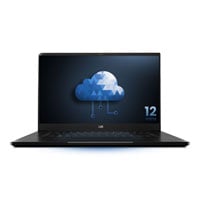
 3XS SC NB4-32T - 12 Months - AMD Ryzen Threadripper PRO 7975WX, 256GB DDR5 ECC, 4x 32GB NVIDIA RTX 5090
LN155028
No customer review£17,280.00
3XS SC NB4-32T - 12 Months - AMD Ryzen Threadripper PRO 7975WX, 256GB DDR5 ECC, 4x 32GB NVIDIA RTX 5090
LN155028
No customer review£17,280.00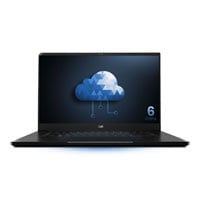
 3XS SC NB8-32T - 6 Months - AMD EPYC 9354P, 256GB DDR5 ECC, 8x 32GB NVIDIA RTX 5090
LN155025
No customer review£17,280.00
3XS SC NB8-32T - 6 Months - AMD EPYC 9354P, 256GB DDR5 ECC, 8x 32GB NVIDIA RTX 5090
LN155025
No customer review£17,280.00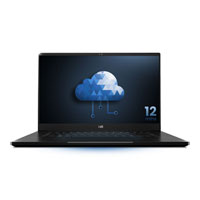
 3XS SC NB8-32T - 12 Months - AMD EPYC 9354P, 256GB DDR5 ECC, 8x 32GB NVIDIA RTX 5090
LN155029
No customer review£34,560.00
3XS SC NB8-32T - 12 Months - AMD EPYC 9354P, 256GB DDR5 ECC, 8x 32GB NVIDIA RTX 5090
LN155029
No customer review£34,560.00

